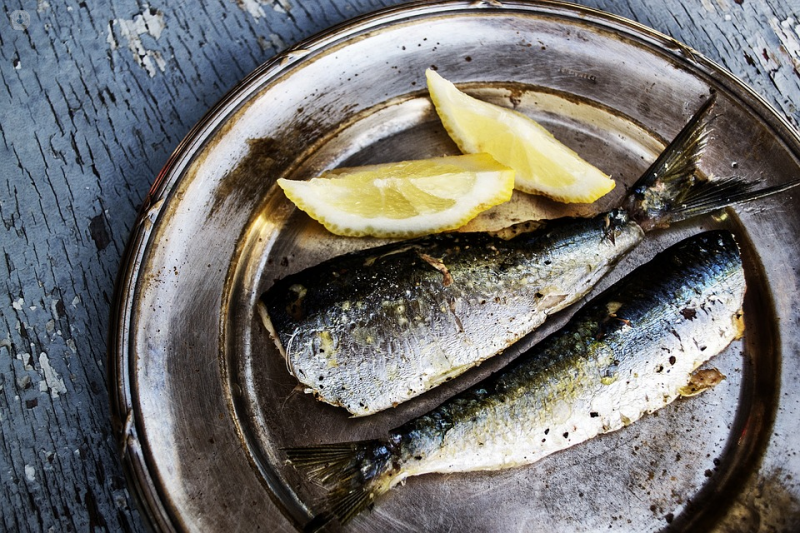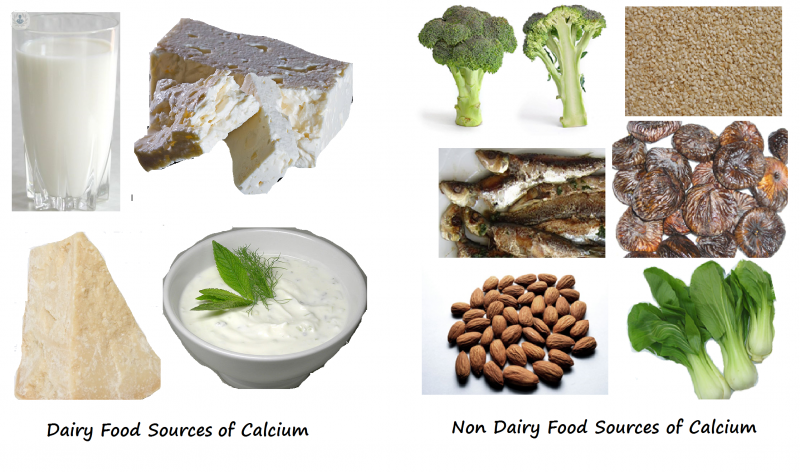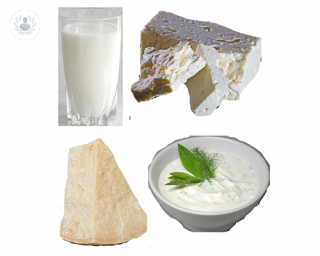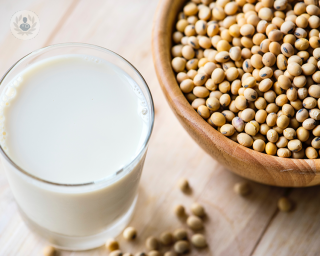Osteoporosis diet
What is osteoporosis?
Osteoporosis is a disease that tends to develop with age, in which bones become porous and brittle. The body is constantly breaking down bone and creating new bone, but if the body loses too much or doesn’t make enough, the natural hollows and spaces in the bones grow, reducing the strength of the bones and making them susceptible to breaks and fractures.
Osteoporosis may occur due to poor bone health. You can help to keep your bones strong and healthy by doing regular exercise and eating a healthy diet. These preventative measures can help reduce your risk of osteoporosis and the right diet can aid treatment in those who already have osteoporosis.
Following an osteoporosis diagnosis, a rheumatology specialist will be able to advise you on the best diet to help prevent the further spread of osteoporosis.

What is the best diet for osteoporosis?
A balanced diet is a good idea for many reasons. Besides helping to prevent osteoporosis, it can also lower the risk of heart disease, diabetes, and even some forms of cancer.
In terms of keeping your bones healthy and strong, the most important elements of your diet are:
-
Calcium
Strengthens bone. It is recommended that adults take in 700 mg of calcium per day. Calcium-rich foods include dairy products, leafy green vegetables, tofu, and dried fruit. -
Vitamin D
Helps the body to absorb calcium. It is recommended that adults take in 10 micrograms (mcg) per day. Vitamin D can be found in oily fish, red meat, egg yolks, liver, and fortified foods such as some breakfast cereals and most fat spreads. We can also get vitamin D from the sun – exposing our skin to sunlight causes our bodies to synthesise its own vitamin D. However, it can be difficult to regularly make or take in enough vitamin D, so a daily supplement may be a good idea.

Is diet the only thing I can change to prevent osteoporosis?
Exercise is equally important. Our bodies respond to our needs, and if we exercise regularly, our bodies recognise the need to cope with the strain of physical activity. In response, our muscles grow, and at the same time, our bone strength increases in order to anchor the increased strength of the muscles and withstand the pressure of exercise. By combining exercise with the right diet, we can improve our bone strength and general health, and reduce the risk of many conditions, including osteoporosis.
Is diet enough to reverse osteoporosis?
If you are already suffering the effects of osteoporosis, it is highly unlikely that simply changing your diet will rebuild the lost bone. You should see a specialist who can help you to plan a combination of treatment and lifestyle measures to give your bones the best chance of becoming stronger.









